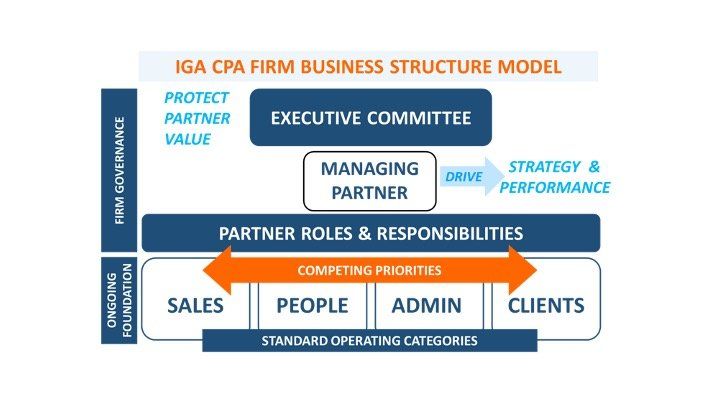Driving Value and Performance During Busy Season
“Let’s wait until after the 15th.”
No CPA has ever said that, right???
Much to the chagrin of many CPA firm leaders, these words are uttered all too easily by partners, managers, and staff.
The fact is that the treadmill of the business world is always running and it doesn’t stop because a CPA is battling the priorities of tax season.
There is no time like the present to deploy strategies and tactics that enhance the firm’s performance and value.
Stepping forward with baby steps is better than not stepping forward at all.
More Valuable Firms Perform Better
CPA firm valuation is typically driven by top line billings or net fees. Ultimately, buyers will pay a multiple of anywhere between percentage points to a higher multiple beyond 1X net fees. The beauty is in the eye of the beholder, or buyer, of course.
With that said, what beauty is a managing partner who plans to not sell beholden to?
Is it more profitability?
Is it better performance?
Is it reduction of write-downs?
Is it top line growth?
If valuation is a function of any or all of these, does it then support the notion that a firm should be always driving a higher valuation? IGA supports firm owners on their journey to building the firm today that will be sold or transitioned tomorrow, next year, or in 10+ years. A more valuable firm is also a firm that performs better and puts money in the pockets of the owners along the way.
So, build the value incrementally, day-by-day, month-by-month, and season-by-season.
The treadmill of your firm’s commitment to growth should never pause.
Value & Performance Enhancing Considerations for Tax Season
Growth-minded CEOs work diligently year-round to improve their firms and they make large chunks of progress especially in the offseason.
How can they continue the incremental progress during their busiest seasons?
We share a handful of suggestions below.
For a more detailed list, click here.
- Get your team to view your firm as a business enterprise and influence their understanding of how a CPA firm is more than simply a “practice,” its a viable “enterprise.” A successful firm is broken into manageable parts: SALES+PEOPLE+ADMIN+CLIENTS
- Facilitate a SWOT analysis discussion with your clients; embed the discussion into audit/tax planning or audit/tax exit process; seek to understand and quantify the areas where a client requires improvement or assistance.
- Ask your clients lots of questions; your intellectual curiosity does two things: it shows clients you care AND it leads to uncovering more opportunities that can be sourced internally or referred externally to a trusted referral source who may then be inclined to reciprocate back to your firm.
- Accelerate work-flow; front load client work into first hours/days of engagement. Design delivery plans that are proactive, with accelerated milestones that allow your team the best chance to delegate tasks back to client early in delivery process. Respect your value as a resource; give attention only to those clients who are prepared and ready for you. Behind most profitable engagements are prepared and controlled clients.
- Be an involved and engaged leader, don’t leave anything to chance; communicate with your staff and avoid the “set it and forget it” approach to managing your engagements and teams.
- Stay in your lane, perform at your paygrade, and delegate. Get your leveraging model right-sized. There is an appropriate spot for each task. Resist the temptation to be a do-it-all CPA. Performing at your paygrade means you make more money.
For access to a more detailed list, click here.
BEST WISHES FOR A SAFE, PRODUCTIVE, AND PROFITABLE TAX SEASON!












